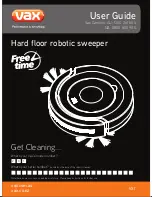
4
OTHER SAFETY WARNINGS
• Maintain the unit with care. Follow all maintenance instructions
in this manual.
• Do not perform maintenance procedures other than those
described in this manual. All service, other than the maintenance
procedures described in this manual, should be performed by an
authorized service dealer.
• Never remove, modify or make inoperative any safety device
furnished with the unit.
• Before inspecting, maintaining, cleaning, storing, transporting or
replacing any parts on the unit:
1. Stop the unit. Refer to Starting and Stopping.
2. Make sure all moving parts have stopped.
3. Allow the unit to cool.
4. Disconnect the spark plug wire.
• Secure the unit while transporting.
• Never store the unit with fuel in the tank, inside a building where
fumes may reach an open flame (pilot lights, etc.) or sparks
(switches, electrical motors, etc.).
• Store the unit in a dry place, secured or at a height to prevent
unauthorized use or damage. Keep the unit out of the reach of
children.
• Never douse or squirt the unit with water or any other liquid.
Keep handles dry and clean (free from debris, oil and grease).
Clean the unit after each use. Refer to Cleaning and Storage. Do
not use solvents or strong detergents.
• Keep these instructions. Refer to them often and use them to
instruct other users. If you loan this unit to others, also loan
them these instructions.
SAVE THESE INSTRUCTIONS
BLOWER SAFETY
• Do not insert anything into the air openings or blower tubes. Do
not operate the unit if any of the air openings or tubes are
blocked. Keep the air openings free from dust, lint, hair and
anything else that may reduce airflow.
• Do not operate the unit without the blower tubes securely attached.
• Do not use the unit to spray liquids, especially flammable or
combustible liquids, such as gasoline. Do not use the unit in
areas where such liquids are present.
• Do not use the unit for spreading chemicals, fertilizer or any
other substance that may contain toxic materials.
• Do not set the unit down on any surface while the unit is
running. Debris can be picked up by the air intake and thrown
out the discharge opening, resulting in damage to the unit or
property or causing serious injury to bystanders or the operator.
• During operation, never point the unit in the direction of people,
animals, windows or automobiles. Always direct blowing debris
away from people, animals, windows or automobiles.
• Use extra caution when blowing debris near solid objects, such
as trees, walls, fences, etc. When possible, blow away from
such objects, not toward them.
• Take care when working near valuable plants. The force of the
blown air could damage tender plants.
• Never attempt to clear a clogged air intake opening while the
unit is running.
• Keep hair, fingers and all other body parts away from moving
parts and openings.
• Always turn the unit off when operation is delayed or when
carrying the unit from one location to another. Make sure all
moving parts come to a complete stop.
• Before setting the unit down, always make sure the engine is off
and all moving parts have stopped.
• If the unit strikes or becomes entangled with a foreign object,
stop the unit immediately. Check for damage. If damaged, do
not restart or operate the unit until it is repaired. Do not operate
the unit with loose or damaged parts.
• Turn the engine off and disconnect the spark plug for
maintenance or repair.
• Use only original equipment manufacturer (OEM) replacement
parts and accessories for this unit. These are available from your
authorized service dealer. Use of any other parts or accessories
could lead to serious injury to the user, or damage to the unit,
and void the warranty.
• Keep the unit clean. Carefully remove vegetation and other
debris that could block moving parts.
• To reduce fire hazard, replace a faulty muffler and spark arrestor.
Keep the engine and muffler free from grass, leaves, excessive
grease or carbon build up.
• If the unit starts to vibrate abnormally, stop the unit immediately.
Inspect the unit for the cause of the vibration. Vibration is
generally an indicator of trouble.





































